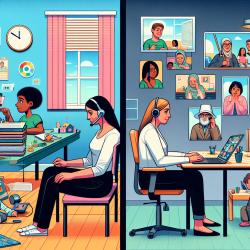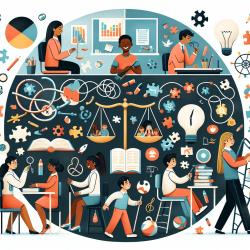Understanding the Role of Inclusivity and Belonging
The study highlights the importance of creating an inclusive environment within informal science learning sites, such as museums, zoos, and science centers. Inclusivity, especially towards youth's own social identity groups (e.g., gender, ethnicity), significantly impacts their sense of belonging and, subsequently, their perceptions of career preparation.Key Findings
- Perceptions of inclusivity for one's own social identity groups at the start of a program are linked to a stronger sense of belonging.
- A strong sense of belonging in a STEM youth program is associated with positive perceptions of career preparation.
- Inclusivity for other social identity groups did not show the same impact on belonging or career preparation.
Practical Steps for Practitioners
To leverage these findings, consider the following strategies:
- Create an Inclusive Environment: Ensure that your programs are welcoming to all social identity groups, with a particular focus on the youth's own gender and ethnic groups. This can be achieved through inclusive activities and representation.
- Foster a Sense of Belonging: Develop programs that promote personal attachment and comfort within the group. This can include team-building activities, mentorship programs, and peer support systems.
- Monitor and Adapt: Regularly assess the inclusivity and belonging within your programs. Use surveys and feedback to make necessary adjustments and improvements.
Encouraging Further Research
While the study provides valuable insights, further research is essential to continue improving STEM career development programs. Practitioners are encouraged to stay informed about the latest research and consider participating in studies to contribute to the growing body of knowledge.
To read the original research paper, please follow this link: Promoting Diverse Youth’s Career Development through Informal Science Learning: The Role of Inclusivity and Belonging.










